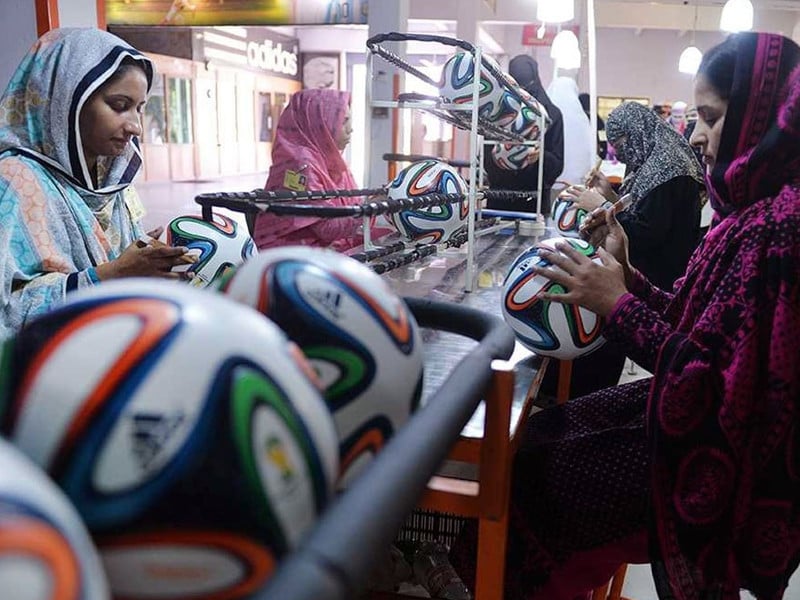The government remains committed to easing the tax burden on exporters.
ISLAMABAD:
The Pakistani government has reaffirmed its commitment to easing the tax burden on exporters, with Minister for Commerce Jam Kamal Khan offering reassurances during a recent meeting with the Sectoral Council for Sports Goods. The virtual meeting, conducted at the Ministry of Commerce, was dedicated to addressing various challenges facing the sports goods industry, with a particular focus on taxation policies and energy production regulations.
Minister Jam Kamal Khan highlighted the government’s determination to support the export-oriented sectors by revising existing policies that impact their operations. A key issue discussed was the current cap of 100 kilowatts imposed on solar energy production by industries engaged in export activities. The cap has been a significant constraint for the sports goods sector, which depends heavily on affordable and sustainable energy solutions to maintain its competitiveness in the global market.
During the meeting, Jam Kamal Khan promised to reconsider this policy and explore potential adjustments to better meet the energy needs of the sports goods industry. The cap on solar energy production has been a source of operational challenges for many businesses, limiting their ability to harness renewable energy sources that could reduce costs and improve overall efficiency.
The minister’s commitment to addressing these concerns is expected to have a positive impact on the sports goods sector, which has long advocated for more flexible energy policies. By lifting or adjusting the cap on solar energy production, the government aims to alleviate some of the operational constraints faced by exporters and help enhance their competitive edge in the international market.

In addition to discussing energy policies, the meeting also focused on taxation issues affecting the sports goods industry. Jam Kamal Khan expressed his intention to advocate for the retention of the fixed tax regime, which has been a key aspect of the industry’s tax structure. The fixed tax regime provides a predictable and stable tax environment for businesses, which is crucial for long-term planning and financial stability.
The minister agreed to present the proposals and concerns of the sports goods industry to the Export Development Board. By doing so, he aims to ensure that the industry’s needs and challenges are adequately addressed in the government’s policy-making processes. The Export Development Board is responsible for formulating strategies to support and promote the growth of export-oriented sectors, and Jam Kamal Khan’s advocacy is expected to influence the board’s decisions regarding tax and energy policies.
The commitment to reviewing and potentially revising the energy cap and tax policies underscores the government’s recognition of the critical role played by the sports goods sector in Pakistan’s economy. The sector not only contributes to export earnings but also supports employment and industrial growth within the country.
As the government moves forward with these initiatives, it is anticipated that the changes will foster a more favorable business environment for the sports goods industry. This, in turn, could lead to increased production, higher export volumes, and enhanced competitiveness on the global stage. The government’s proactive approach in addressing the sector’s challenges reflects its broader strategy to support key industries and drive economic development through targeted policy interventions.
Overall, the discussions and assurances provided by Minister Jam Kamal Khan represent a positive step towards resolving some of the long-standing issues faced by the sports goods industry. The anticipated policy adjustments are expected to provide much-needed relief and support for businesses, enabling them to better navigate the complexities of the global market and contribute to Pakistan’s economic growth.


